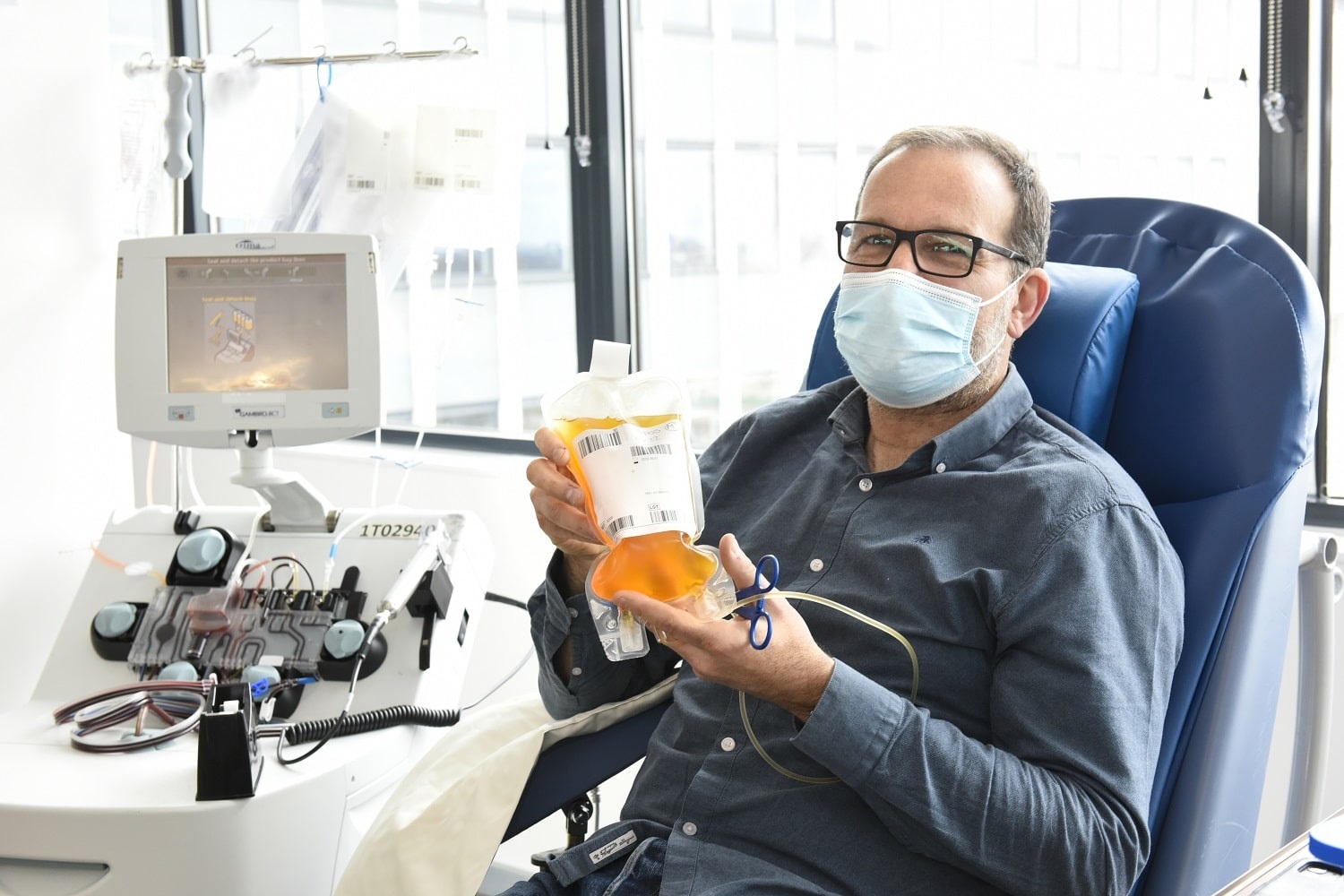There are several reasons why people donate plasma:
- They want to help other people
- They've had a particular illness, like COVID-19, and know that their convalescent plasma may help other people who are suffering from that illness
- They want to earn money
Full Answer
How much do you really get paid to donate plasma?
AdDonate Plasma Today and Be Rewarded For Your Time at a CSL Plasma Center Near You. Do the Amazing. Help Save Lives. Compensation Varies by Location, and Subject to Change
How much can I earn donating plasma?
Mar 17, 2022 · Each plasma collection center sets its own pay chart and compensation rates. Even within a company like BioLife, the rates depend on the particular center. However, …
How much is compensation for donating plasma?
You will not get paid. If you have donated some plasma, and pass out, they might pay you, but they will then notify all other plasma centers that you are a fainter and you will not be accepted …
How do you get paid for plasma donation?
Dec 30, 2021 · There are numerous reasons why plasma donors get paid for their contributions, the first being the time commitment that is required for plasma donation. Repeat donors can …

Is donating plasma worth it?
Donating does a lot of good. Blood plasma is needed for many modern medical therapies. These include treatments for immune system conditions, bleeding, and respiratory disorders, as well as blood transfusions and wound healing. Plasma donation is necessary to collect enough plasma for medical treatments.
Why do you get paid for blood plasma?
Plasma donation — in which blood is drawn, plasma separated out, and then blood cells and other components put back into you — is often compensated. ... The reason is that plasma collected this way never goes straight into another person. It's broken into many different protein products that will become pharmaceuticals.Jan 22, 2016
Who pays the most for plasma?
If we go strictly by the base pay for donations, Biotest Plasma pays the most (up to $365 per month).Aug 13, 2021
What disqualifies you from donating plasma?
People can't donate if they have or had tuberculosis, heart disease (and currently taking medication for it), sickle cell anemia, certain types of cancer, or malaria (contracted in the past three years or travelled to an endemic area in the past year).Nov 12, 2019
Is donating plasma bad for you?
Donating plasma can cause common but usually minor side effects like dehydration and fatigue. Serious side effects may occur as well, although these are rare.
How often can you donate plasma?
You can donate plasma every 28 days, up to 13 times per year. While the FDA does allow donors to give plasma more frequently, this is the best practice for safety, according to the American Red Cross. The whole process takes about an hour and 15 minutes.
How much can I sell my plasma for?
The amount you will make for selling plasma varies depending on a number of factors, but plasma donation centers generally offer between $30 and $60 per donation session.
How much money do you get from donating plasma at BioLife?
How much does BioLife pays for donating plasma? Obviously, each center pays differently. That said, on average, people earn $20 or $25 for their first week, while they may earn up to $30 to $45 for their second week.
Why do they check your elbows when donating plasma?
They check your elbows because they are looking for any signs that you are using needles used for illicit drugs (track marks). They don’t want anyone donating with a high possibility of having HIV or AIDS from sharing needles.
Why do you get paid for plasma but not blood?
Blood plasma is the clear liquid part of the blood. It contains water, some enzymes, antibodies, and proteins. They use it to create products that can help folks with blood clotting disorders and other diseases. You get paid because it can take about an hour and a half.
Is it better to give blood or plasma?
Anyone can donate plasma, but most people make better whole blood donors. The vast majority of people are either O-positive or A-positive, so most other people can receive their red cells in a transfusion. Only those with AB-positive blood could receive them.

Popular Posts:
- 1. how did andrew carnegie donate his money quizlet
- 2. how is a call to action button different than a donate button
- 3. where can i donate clothes for refugees
- 4. where can you donate pillows
- 5. when you donate to gosu doubliputu
- 6. why can't grocery stores donate food
- 7. last line on federal tax return where i can donate to feds
- 8. where can i donate white blood cells for money
- 9. how to donate cheer on twitch
- 10. where can you donate old computer keyboards